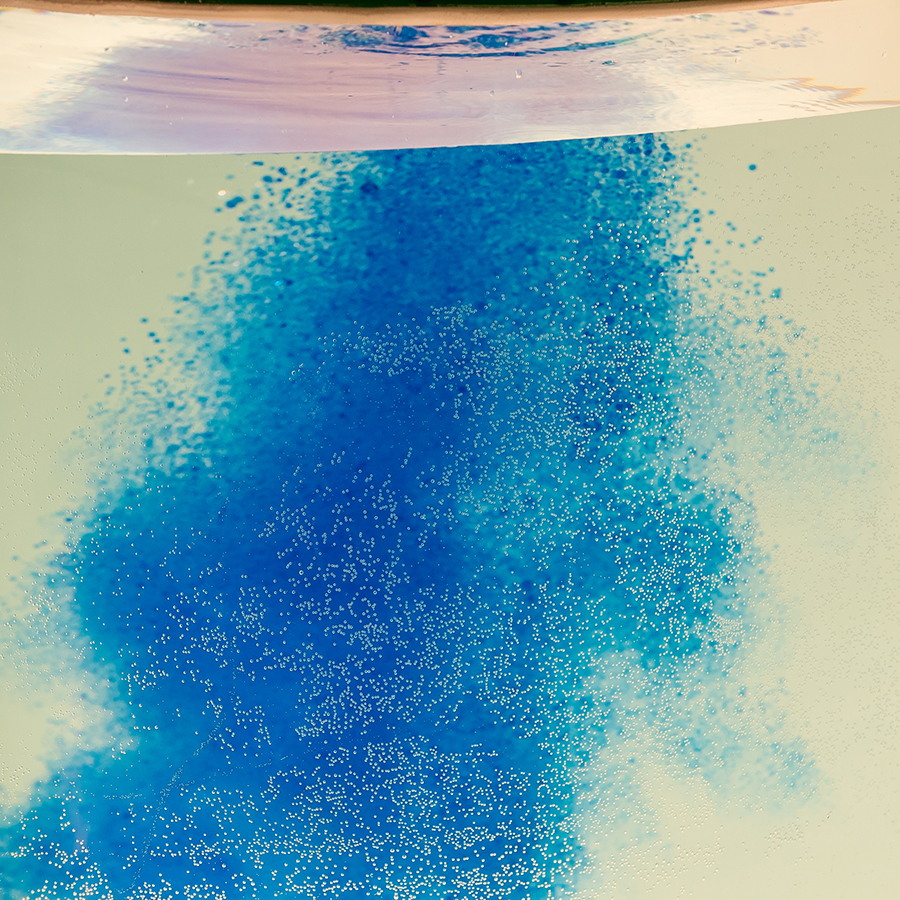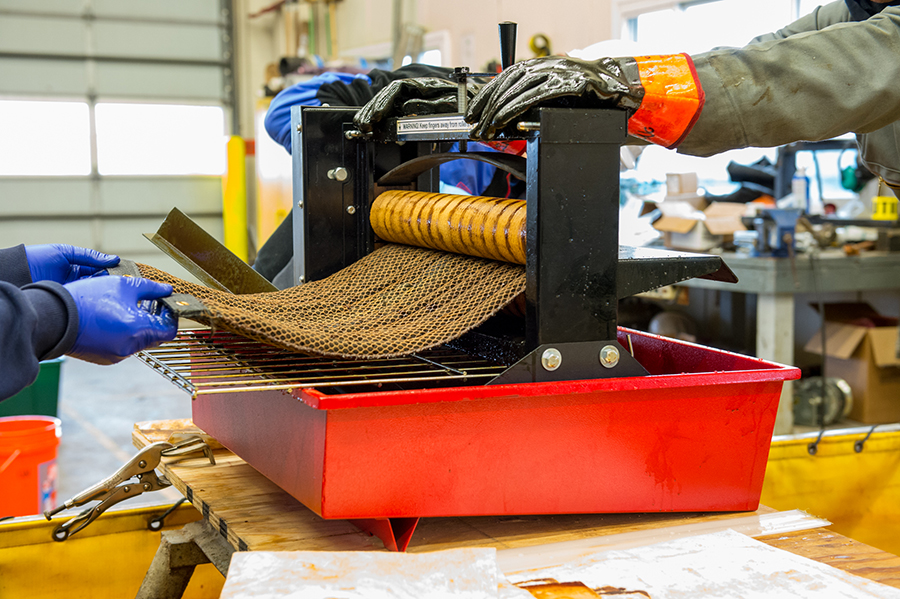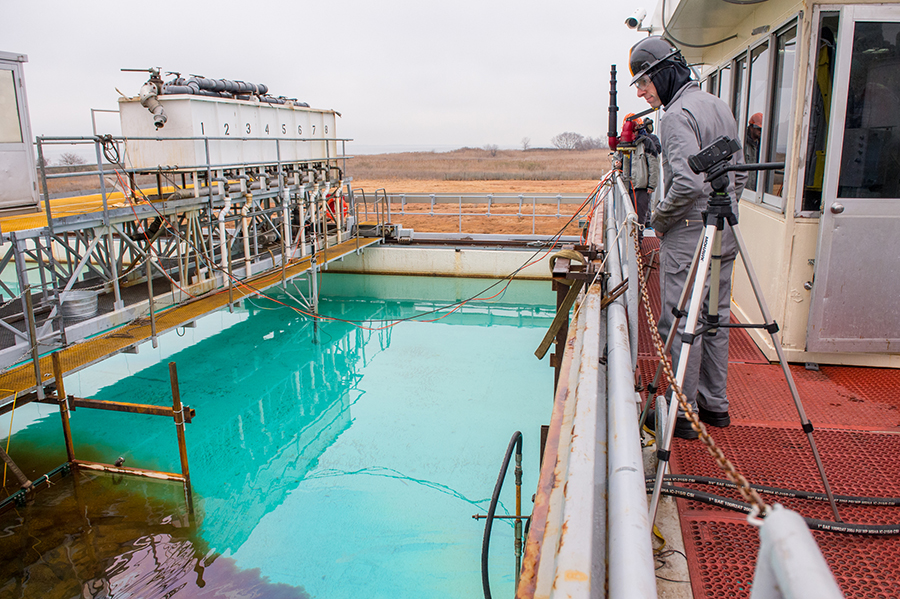
- Sustainable Planet -
- 2mins -
- 231 views
Scientists invent reusable sponge that could revolutionise oil spill and diesel cleanup
Scientists at the US Department of Energy’s (DOE) Argonne National Laboratory have invented a new foam called ‘Oleo Sponge’ that not only easily absorbs oil from water, but is also reusable and can pull dispersed oil from the entire water column—not just the surface.
Check out a video of the sponge and its amazing properties
The material, which looks a bit like an outdoor seat cushion, can be wrung out to be reused—and the oil itself recovered!
All photos: Mark Lopez/Argonne National Laboratory
“The Oleo Sponge offers a set of possibilities that, as far as we know, are unprecedented.”
In a recent press release from Argonne National Laboratory, Louise Lerner, lab science writer and editor of Argonne Now, reported on this latest breakthrough in the battle to tackle oil and diesel spills. The report begins by saying–
‘When the Deepwater Horizon drilling pipe blew out seven years ago, beginning the worst oil spill in US history, those in charge of the recovery discovered a new wrinkle: the millions of gallons of oil bubbling from the sea floor weren’t all collecting on the surface where it could be skimmed or burned. Some of it was forming a plume and drifting through the ocean under the surface.’
The report continues-
‘Now, scientists at the US Department of Energy’s (DOE) Argonne National Laboratory have invented a new foam, called Oleo Sponge, that addresses this problem. “The Oleo Sponge offers a set of possibilities that, as far as we know, are unprecedented,” said co-inventor Seth Darling, a scientist with Argonne’s Centre for Nanoscale Materials and a fellow of the University of Chicago’s Institute for Molecular Engineering.’

How it works:
The scientists started out with common polyurethane foam, used in everything from furniture cushions to home insulation. This foam has lots of nooks and crannies, like an English muffin, which could provide ample surface area to grab oil; but they needed to give the foam a new surface chemistry in order to firmly attach the oil-loving molecules.
Previously, Darling and fellow Argonne chemist Jeff Elam had developed a technique called sequential infiltration synthesis, or SIS, which can be used to infuse hard metal oxide atoms within complicated nanostructures.
After some trial and error, they found a way to adapt the technique to grow an extremely thin layer of metal oxide “primer” near the foam’s interior surfaces. This serves as the perfect glue for attaching the oil-loving molecules, which are deposited in a second step; they hold onto the metal oxide layer with one end and reach out to grab oil molecules with the other.
The result is Oleo Sponge, a block of foam that easily adsorbs oil from the water.
Source: Louise Lerner/Argonne National Laboratory



